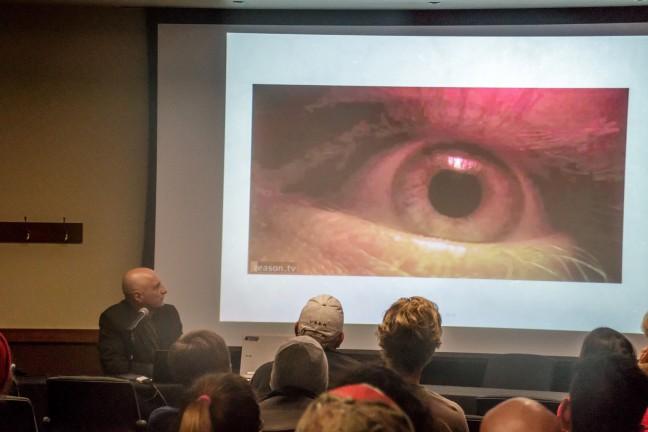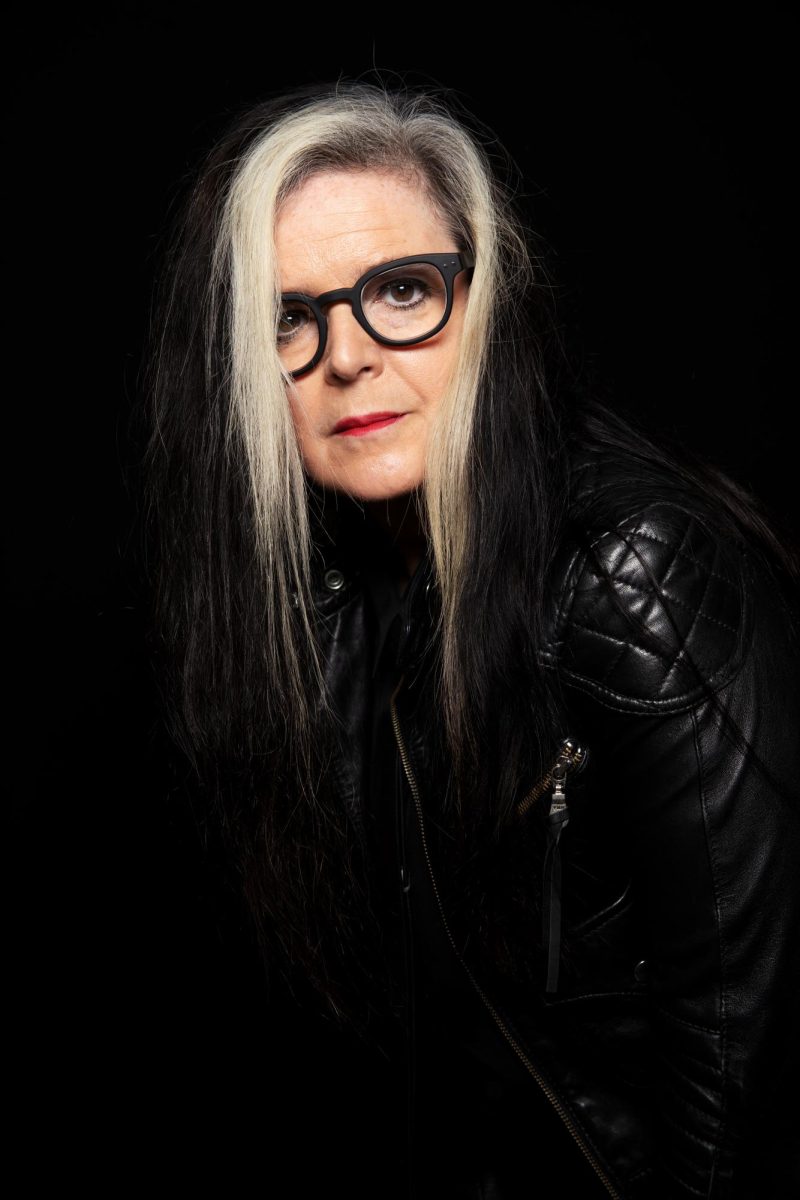While most might not expect it, the hallucinogens University of Wisconsin students trip on probably captivate some of their professors just as much as their peers.
Lesser known outside of medical circles, the key to an array of solutions for a variety of ailments might just lie in psychedelic drugs.
To highlight developments in the research, Wisconsin Union Directorate produces an annual show about the trippy drugs. Oct. 19, Nicholas Cozzi, a UW professor of pharmacology, returned with guest speakers Michael Crowley and Allan Ajaya to speak about psychedelic drugs and the medical advancements they’re bringing about.
All three speakers work in the medicinal applications of psychedelic and hallucinogenic drugs, mainly for mental illnesses like PTSD.
Cozzi’s main research surrounds a compound called psilocybin, which is the chemical that creates hallucinations after ingesting magic mushrooms. Cozzi synthesizes the compound, which medical labs at places like NYU and Johns Hopkins use for research.
NYU’s research labs have helped prove psychedelic drugs’ effectiveness against anxiety in terminal cancer patients. The recent study found psilocybin helped dying patients find peace and pass on more comfortably. Cozzi said psilocybin puts the patient in a “dream-like state” where suffering patients may then find the answers to their issues within their subconscious.
Cozzi said pharmaceuticals currently only help patients cope with the symptoms of mental illness, while the goal of psychedelics research is more direct. The purpose is to find a treatment which cures the patient rather than only dealing with the problem at surface level.
UW actually has a psilocybin study of its own that experiments on human volunteers. Researchers study the process of how the substance passes through the body. This means those who wish to trip legally can sign up for this FDA and DEA approved study in which they’re administered psilocybin.
Even so, Cozzi said various misconceptions still surround the use of psychedelic drugs, and chiefly among them is their alleged addictiveness. But the effects of psychedelics are contrary to Cozzi’s definition of addiction — continued use despite harm. He said psilocybin has actually helped people resist their addictions to substances such as alcohol and tobacco.
However, Cozzi said psychedelic drugs often don’t work for everyone.

“If someone is too mentally unstable, [psychedelics] potentially could not help in their intended form,” Cozzi said. “There is a hallucinogenic trip involved in the treatment, so it may be difficult for someone who may be afraid of hallucinating.”
Other misconceptions center around the supposed negative health effects of these drugs, which Cozzi said are largely unfounded. He said psychedelics aren’t toxic, don’t cause brain damage and aren’t carcinogens.
Despite psychedelic drugs’ proven benefits, they still remain illegal recreationally. The government banned them in the 1960s when they were seen as a political symbol of the liberal hippie movements at a time when politicians needed support to continue the Vietnam War. But similar to marijuana, psychedelics are gradually becoming more accepted as science continues making discoveries.
In the meantime, taking a natural path, such as peyote or the ayahuasca tea, could also be a route for people searching for the benefits psychedelics offer, Cozzi said.
Current studies of psilocybin, LSD and DMT are meant to find cures for mental illnesses such as PTSD, anxiety and depression, all in a maximum of three doses, Cozzi said.








